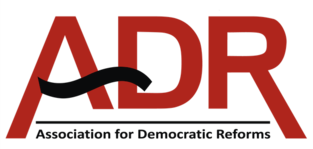The public-private partnership model has been dissected. For a change, the role of the corporate sector has been put under the microscope. And it has been found to be actively collaborating with politicos and bureaucrats to perpetrate large-scale corruption.
In its latest newsletter, the Central Vigilance Commission (CVC) has featured a recent report by Transparency International India (TII) that documents this unholy government-industry nexus.
The report makes scathing observations on the rot in the private sector against the backdrop of the 2G spectrum allocation scam, in which major private players are in the dock for colluding with incarcerated former telecom minister A. Raja and his team of officials to execute India's biggest corruption scandal.
"The private sector is no more a victim of corruption in India. Instead, it is instrumental (in effecting it) and hand-in-glove with public officers. Collusive corruption, where officials from public sector undertakings join hands with the private sector, is greatly present in the Indian business environment, particularly in the power, mining and oil sectors," the TII report states.
"The government must (install) a strong deterrent tool to curb corruption in the private sector," it suggests, adding that the country's corporates are considered "active participants" in graft by indulging in bribery.
"They (private sector officials) pay bribes to (their counterparts) from other private companies to get their work done," the report points out. TII is the accredited India chapter of Transparency International, the global anti-corruption civil society organisation based in Berlin, Germany.
TII has prepared the report to assess the impact of government departments adopting the organisation's Integrity Pact (IP) to curb corruption in procurements. The report recommends that the private sector, too, should embrace IP.
An IP is a tool developed in the 1990s by TI to help governments, businesses and the civil society in combating corruption in the field of public contracting. The IP establishes mutual contractual rights and obligations to reduce the high cost and distorting effects of graft in public deals.
The report puts in perspective the Union government's efforts to bring the private sector in the corruption ambit as well. While sharp differences exist among states on the issue of anti- graft ombudsman Lokpal, almost all of them are on the same page as the Centre on keeping the private industry, too, under the lens in the fight against corruption.
The government disclosed this on Wednesday in reply to a question in Parliament. Five months ago, Prime Minister Manmohan Singh had floated the idea of making the private sector accountable for corruption while attending a CBI function.
Now, 22 states and Union Territories have sent their responses to the Centre and only Himachal Pradesh has objected to the proposal, minister of state of personnel V. Narayanswamy revealed.
The proposal is to amend the Indian Penal Code to make bribery in the private sector an offence, which would attract punishment commensurate to that meted out to a corrupt government official.
The 2G scam brought to fore the collusive corruption between the government and private sector as Raja was chargesheeted for misusing his official position to favour industry biggies. The private companies whose names figured in the CBI chargesheet included Reliance Telecom, Unitech Wireless (Tamil Nadu) and Swan Telecom.
Charges were also made out against Swan promoter Shahid Balwa; Vinod Goenka, a director in Mumbai- based DB Realty which was also the promoter of Etisalat DB; Sanjay Chandra, managing director of Unitech and Unitech Wireless (Tamil Nadu) Pvt Ltd; and Gautam Doshi, Hari Nair and Surendra Pipara, senior officials of the Reliance ADA Group.
Subsequently, the CBI also chargesheeted Rajya Sabha MP M. K. Kanimozhi; Kalaignar TV director and 20 per cent equity holder Sharad Kumar; Asif Balwa and Rajiv Aggarwal, directors of Kusegaon Fruits and Vegetables; and Cineyug Films director Karim Morani.
In December 2011, the central investigation agency chargesheeted Essar Group promoters Ravi Ruia and Anshuman Ruia as well as Loop Telecom promoters I. P. Khaitan and Kiran Khaitan for criminal conspiracy and cheating in another telecom matter.
The government has already made illegal gratification given to foreign public officials in India a criminal offence. The Prime Minister had said in October 2011 that these changes to the law (making bribery in the private sector a punishable offence) were obligatory under the United Nations Convention against Corruption, which India had ratified last year.
Other states which agree with the Centre's proposal are Arunachal Pradesh, Assam, Goa, Haryana, Jammu & Kashmir, Jharkhand, Kerala, Maharashtra, Manipur, Meghalaya, Mizoram, Nagaland, Punjab, Rajasthan, Sikkim, Tripura, Andaman & Nicobar Islands, Chandigarh, Daman and Diu, Dadra & Nagar Haveli, the NCT of Delhi and Lakshadweep.
The Jammu and Kashmir government has, in fact, conveyed to the Centre that the proposed amendment will be a step forward.






